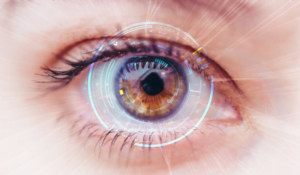
You’re not alone if you’ve been told you have astigmatism; it’s a common ailment that impacts plenty of people. We’ll talk about astigmatism and how it impacts your eyesight in this section.
The Shape of a Cylindrical Disc
Refractive error known as astigmatism results from the uneven, disc-like shape of the front surface of your eye.
Uneven Light Curvature
Because of its asymmetrical form, light rays going through the cornea bend unevenly, impairing eyesight.
Typical in Children
While astigmatism can affect anyone at any age, it most frequently affects kids. In fact, astigmatism affects up to one-third of all preschoolers. However, by the time they are of school age, many kids have outgrown it.
Identifying Symptoms
If you have astigmatism, you can also experience headaches, squinting, fatigue, or general visual blurriness.
Getting Advice from an Optometrist
A visit to an optometrist is a smart move if you experience any of these signs or have been told you have astigmatism. They will talk to you about your problem and advise you on the most effective course of action.
Pleasure of Clear Vision
For many years to come, clear vision can be maintained with the right care and maintenance.
Conclusion
A typical refractive error called astigmatism is brought on by the front surface of the eye’s uneven shape. Particularly in children, it may result in hazy or distorted vision. If you have astigmatism symptoms or have been diagnosed with it, seeing an optometrist can help you determine the best course of action for clear vision.
Frequently asked questions
The severity of astigmatism can alter over time, particularly during childhood. An optometrist can monitor any changes and modify your vision correction as necessary with regular eye exams.
Astigmatism can frequently be treated with glasses, contact lenses, or refractive surgery and does not result in irreversible vision loss.
You can have astigmatism in just one eye, yes. Astigmatism can, however, sometimes afflict both eyes.
Yes, astigmatism is heritable. You may be more likely to develop astigmatism if you have a family history of the condition.
Yes, there are unique toric contacts made specifically to treat astigmatism. Your optometrist can assist you in selecting the ideal contact lens for your unique requirements.





Recent Articles:

Alleviating Digital Eye Strain: Tips for Screen Users

The Truth About Seeing in the Dark

The Myth of Green Improving Eyesight

The Dangers of Looking Directly at the Sun

The Risks of Using Smartphones in the Dark on Eye Health

An Examination of Visual Phenomena for “Ghost Images”




